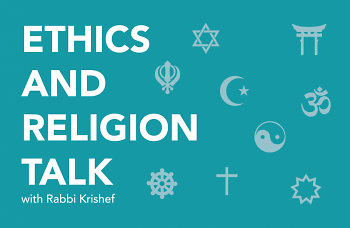Father Kevin Niehoff, O.P., a Dominican priest who serves as Adjutant Judicial Vicar, Diocese of Grand Rapids, responds:
“Yes! Because these questions are all variations of the same. In the Catholic tradition, ‘humans are creatures composed of body and soul, made in the image and likeness of God’ (Baltimore Catechism, first lesson).
“Human beings by nature are social creatures. In the creation story, Adam is created alone and despite all the beauty in the Garden of Eden, including animals that could be companions, Adam was still lonely. Only after Eve was created did Adam have an equal companion. Adam and Eve developed their life together after the fall from grace by communicating with one another. God, the designer of creation, continues to interact with all human beings through the magnificent world around us. We continue to discover ourselves in the interaction with others as reflected by God in His creation. So, yes, I am the person I say I am, whom others say I am, and whom God says I am!”
Fred Stella, the Pracharak (Outreach Minister) for the West Michigan Hindu Temple, responds:
“If I were to ask everyday folks if a table in front of them was solid I assume all would agree. But if several physicists walk into the room they would note that the table is really made up of condensed light waves; so, in reality, it is more fluid than our senses tell us. But are the others wrong? Obviously not.
“From a Hindu point of view, we would say the correct answer to your question is ‘all of the above.’ By that I mean that it’s true, we do have a limited understanding of who we are as individuals. People who regularly introspect, and can very honestly identify the motivations for their actions can be said to know themselves better than others.
“But only the wisest among us are able to see ourselves as others do. We have blind spots that keep us from observing every tiny aspect of our whole self. So, in evaluating a person it is always a good idea to consider the opinions of others. However, those outside estimations have their boundaries as well. We come to judgements of people with our own biases.
“And God knows us as pure souls that are each a part of Him. Like a physicist, He sees the deepest reality, but this doesn’t negate our less perfect understanding.”
Rev. Ray Lanning, a retired minister of the Reformed Presbyterian Church of North America, responds:
“The answer is, in one way or another, we are all three. The first two sources of “self image” or identity are only relatively true or helpful. There is always an element of deceit in how we see ourselves, and of course, how others see us depends on whether they love or hate us. As sinners we all prone to think better of ourselves than we should, and to be more critical of others than is just or right. ‘Surely every man walketh in a vain show’ (Psalm 39:6). This problem of vanity and self-deceit is compounded by the damage we do to ourselves and others by mistaken ideas of what people should or should not be.
“God comes to our rescue with the light of His Word. There is a history to our race which no archeologist can lay bare. ‘In Adam’s fall, we sinned all.’ We cannot understand ourselves or our world unless we factor in the way in which sin holds dominion over the children of Adam. Nor can we become what our Maker wants us to be until we avail ourselves of the grace held out to us in the life, death, and resurrection of God’s incarnate Son, Jesus Christ. When we begin to see ourselves as God sees us, as sinners saved by grace, through faith in Jesus Christ, we are set free from our self-deceptions and the misconceptions of others. ‘Likewise reckon ye also yourselves to be dead indeed unto sin, but alive unto God through Jesus Christ our Lord’ (Romans 6:11).”
The Reverend Colleen Squires, minister at All Souls Community Church of West Michigan, a Unitarian Universalist Congregation, responds:
“I am a pretty authentic individual because I sincerely value people who are real. I try to be transparent and to speak honestly, so yes, I do believe I am who I say I am. I think those who truly know me, like most members of my congregation have an accurate understanding of who I am. As for God, I am an openly gay, woman minister serving a Unitarian Universalist congregation in the conservative city of Grand Rapids, Michigan. I think and hope that I am who God has called me to be. I believe I am here for a reason and I pray everyday that I do my best to fulfill my calling.”
This column answers questions of Ethics and Religion by submitting them to a multi-faith panel of spiritual leaders in the Grand Rapids area. We’d love to hear about the ordinary ethical questions that come up in the course of your day as well as any questions of religion that you’ve wondered about. Tell us how you resolved an ethical dilemma and see how members of the Ethics and Religion Talk panel would have handled the same situation. Please send your questions to [email protected].
The Rapidian, a program of the 501(c)3 nonprofit Community Media Center, relies on the community’s support to help cover the cost of training reporters and publishing content.
We need your help.
If each of our readers and content creators who values this community platform help support its creation and maintenance, The Rapidian can continue to educate and facilitate a conversation around issues for years to come.
Please support The Rapidian and make a contribution today.
